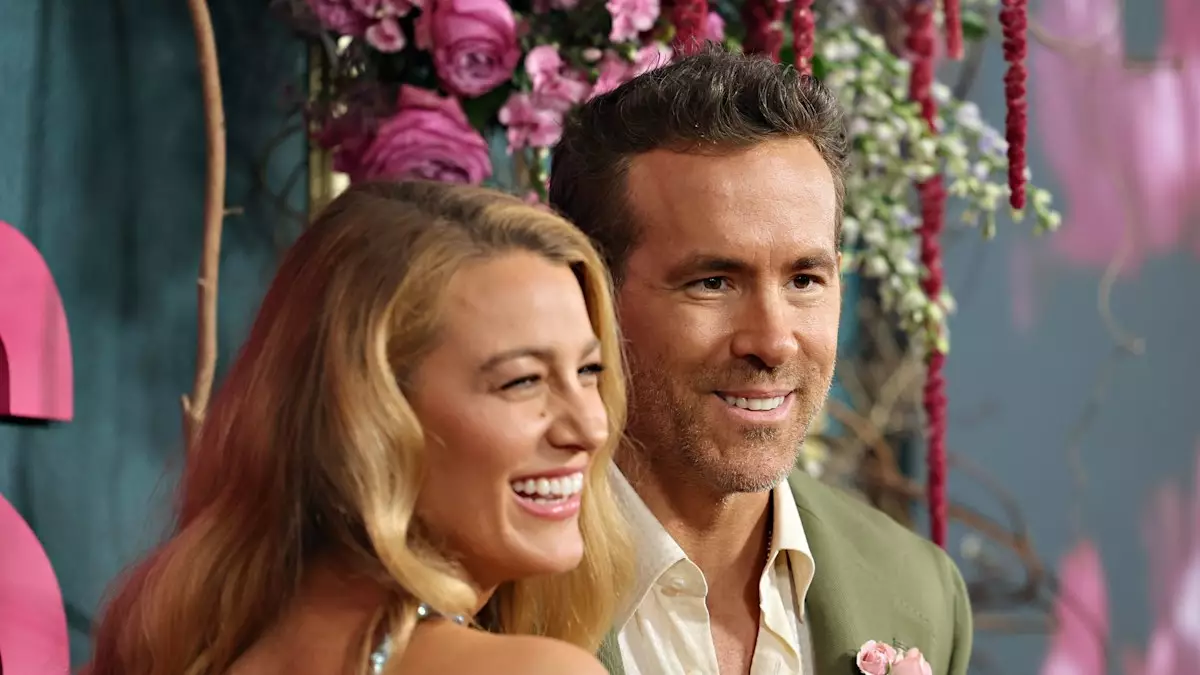In an age where conversations surrounding accountability and ethics within the entertainment industry are more crucial than ever, Blake Lively’s recent lawsuit against her co-star and director Justin Baldoni has heightened awareness on issues of sexual misconduct. Lively has made serious claims against Baldoni for allegedly attempting to “destroy her reputation.” This high-profile case has not only placed Lively at the center of a media storm but has also cast a shadow over her husband, Ryan Reynolds, who has been implicated in the discussions regarding the matter. This situation raises significant questions about the nature of celebrity, power dynamics in the film industry, and the emotional strain on families involved in such controversies.
The gravity of Lively’s allegations cannot be understated; she is part of a broader discourse where women are increasingly coming forward to share their experiences of harassment and misconduct in their workplaces. The inclusion of Ryan Reynolds in this scenario complicates matters even more, as his influence extends beyond his role as an actor into the decision-making processes of the film’s production. This complicity illustrates how intertwined personal and professional dynamics can be, especially in an industry ripe with power imbalances.
Ryan Reynolds’ public response to the growing narrative around his wife’s lawsuit came in the form of philanthropy rather than confrontation. His focus on raising funds for SickKids, a foundation dedicated to supporting children’s health, seems to epitomize both a strategic move to divert attention from the controversy and a genuine attempt to use his platform for good. By leveraging his celebrity status, Reynolds has effectively redirected the narrative, championing a cause that resonates with many, whilst also presenting himself as a devoted husband during a tumultuous time.
His video, in which he donned the Deadpool costume beside one of his daughters, served not only to promote the charitable initiative but also to convey a family-oriented message. The juxtaposition of the light-hearted Deadpool persona with the underlying tension surrounding his wife’s legal battle reveals a complex emotional landscape. Despite the turbulence within their lives, the Reynolds family appears committed to maintaining a semblance of normalcy and joy, particularly during the holiday season.
While Reynolds focuses on charity work, the broader entertainment community has rallied around Lively. Support has poured in from her co-stars and other prominent figures, illustrating a collective stance against harassment. This wave of affirmation emphasizes the importance of solidarity in instances of alleged misconduct and suggests a possible shift in how industry peers respond to such allegations. The inclusive responses from her former co-stars from The Sisterhood of the Traveling Pants, alongside the support from others like Colleen Hoover and Amber Heard, demonstrate that the struggle for accountability resonates across various circles within the entertainment realm.
This solidarity cannot be overlooked; it underscores a growing recognition of the need for change within Hollywood. The supportive actions of Lively’s colleagues highlight a collective effort to challenge the status quo, sending a clear message that silence is no longer an option. As more individuals empower themselves and each other to speak out, industry-wide transformations may begin to take hold.
The narrative unfolding between Blake Lively, Ryan Reynolds, and Justin Baldoni presents a fascinating juxtaposition of public and private lives, love and advocacy within the confines of celebrity culture. Reynolds’ charitable pursuits serve as a beacon of positivity against a backdrop of turmoil, reflecting the complexities of navigating personal crises in a public forum. In emphasizing their dedication to charitable work and familial unity amid attempting times, the couple embodies resilience, shining a light on the ability to channel personal struggles into broader societal contributions.
As new details continue to emerge regarding Lively’s lawsuit, it is essential to remain vigilant about how intimate and professional relationships manifest within the entertainment industry. The challenges presented by such situations reveal the need for ongoing conversations about consent, power, and representation. In the end, Lively’s plight and Reynolds’ philanthropic focus offer nuanced lessons in resilience, community, and the importance of supportive networks in addressing systemic issues.
Through their intertwined stories, we can glean valuable insights about love, strength, and the increasingly necessary dialogue surrounding respect and accountability, not only in Hollywood but across all professions.
